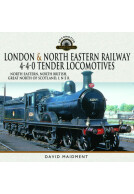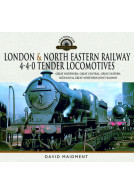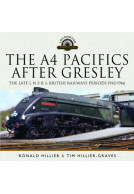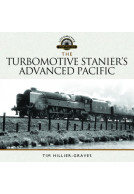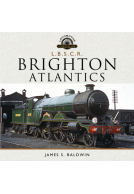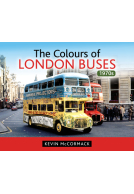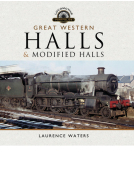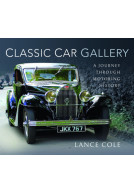Great Western, County Classes (Hardback)
The Churchward 4-4-0s, 4-4-2 Tanks and Hawksworth 4-6-0s
Imprint: Pen & Sword Transport
Series: Locomotive Portfolios
Pages: 224
Illustrations: 200
ISBN: 9781526706379
Published: 3rd August 2018
(click here for international delivery rates)
Order within the next 3 hours, 49 minutes to get your order processed the next working day!
Need a currency converter? Check XE.com for live rates
| Other formats available - Buy the Hardback and get the eBook for free! | Price |
|---|---|
| Great Western, County Classes ePub (48.1 MB) Add to Basket | £12.00 |
The Great Western Railway had two classes of tender locomotives named after counties. The first class of two cylinder 4-4-0 tender locomotives, designed by George Jackson Churchward, were introduced in the 1900s to provide efficient motive power, including lines on the 'North & West' route between Hereford and Shrewsbury, owned jointly by the Great Western and L.N.W.R.
The 4-4-0 counties were in service until the early 1930s, when they were withdrawn and replaced by more modern motive power.
The 4-4-0 countie, were paralleled in design by the county 4-4-2 tanks, which operated suburban services in the London area and were also withdrawn in the early 1930s.
In 1945, the Great Western introduced the County 4-6-0 tender locomotives, designed by F W Hawksworth. These two cylinder machines had a high pressure boiler that was meant to give the same tractive effort as a Castle class 4-6-0 four cylinder locomotive,
After modifications and boiler pressure reduction, the County class 4-6-0s operated in express and semi fast train service, until the last members of the class were withdrawn in 1964.
AUTHOR David Maidment is a Methodist who began his railway management career in 1960 and although he retired from the railway industry some 22 years ago, he is still busy as founder of the international Railway Children charity – and as a writer and speaker, having retained an encyclopaedic knowledge of all things railway with a particular fondness for the days of steam. That will be obvious from his latest book, Great Western County Classes: The Churchward 4-4-0s, 4-4-2 Tanks and Hawksworth 4-6- 0s (Pen & Sword Books, £30), a large coffee table affair that will keep steam enthusiasts occupied for hours on end with its iconic photos, commentaries and inevitable statistics from the glory days of the Great Western Railway (GWR, sometimes known as “God’s Wonderful Railway”). The 4 -4-0 counties and the 4-4-2 tank locomotives (designed by George Jackson Churchward) were phased out in the 1930s, while the later 4-6-0s (designed by F W Hawksworth) were finally withdrawn from service in 1964. No doubt about it – if there was a place for a Connexional rail enthusiast, David Maidment would be the obvious candidate.
Methodist Recorder
As with all David Maidment's locomotive books this one is well researched and contains a lot of valuable information.
Friends of the National Railway Museum
The text is supported by an excellent selection of photographs showing most of the locomotives either at rest or working trains.
AS featured here
Miniaturas JM
Combining well-researched history, a quality album in its own right and a fact-packed work of reference, David Maidment's book is a 'must' for any GW enthusiast's bookshelf.
Great Western Echo
About David Maidment
David Maidment was a senior manager with British Railways, with widespread experience of railway operating on the Western and London Midland Regions culminating in the role of Head of Safety Policy for the BRB after the Clapham Junction train accident. He retired in 1996, was a Principal Railway Safety Consultant with International Risk Management Services from 1996 to 2001 and founded the Railway Children charity (www.railwaychildren.org.uk) in 1995. He was awarded the OBE for services to the rail industry in 1996 and is now a frequent speaker on both the charity and his railway career and author of four novels, two non-fiction works on street children and over eighteen books for Pen & Sword’s locomotive portfolio series, the royalties from all being donated to the charity.












